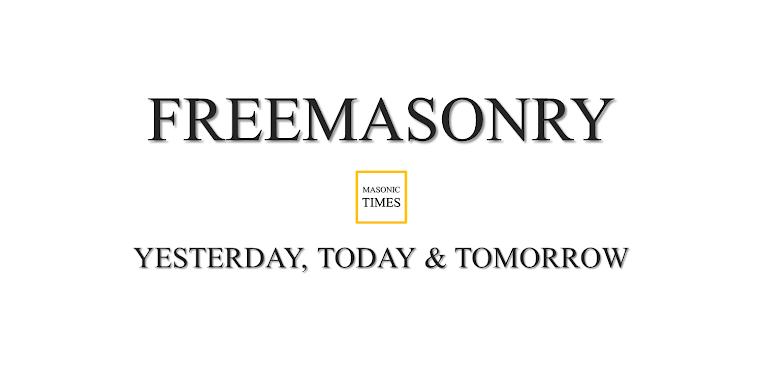Home » Archives for December 2010
Friday, 31 December 2010
Tuesday, 21 December 2010
UGLE's activity will be unaffected by the Royal wedding
21:27:00 A
Sunday, 19 December 2010
Masonic points of view on Climate Change
14:07:00 A
Interview with the Executive President of the World Conference of Regular Grand Lodges, Hernando OSORIO RICO
Interview with the Past Sovereign Grand Commander of the Supreme Council of the State of Israel, Leon ZELDIS MANDEL
Interview with the President of the Confederation of Regular Grand Lodges of Mexico, Dr. Felipe VITELA MORA
Interview with the Grand Master fo the Regular Grand Lodge of Portugal (Grande Loja Legal de Portugal), Jose Francisco MORENO
Interview with the Grand Master of the National Grand Lodge of Colombia at Cartagena de Indias, Idelfonso BALDIRIS SILVA
Interview with the Grand Master of the Symbolic Grand Lodge of Paraguay, Carlos Alberto QUIÑONEZ
Interview with the Grand Master of the Grand Lodge of State, Sovereign and Independent "El Potosi", Israel HERNANDEZ ARRIAGA
Interview with the Past Grand Master of the Grand Lodge of Aguascalientes, Evaristo VELASCO
Wednesday, 15 December 2010
Freemason Dumitru Prunariu receives the "Ten for Romania" Prize
21:07:00 A



Monday, 6 December 2010
Secret agreement in Cancun (COP16)?
13:25:00 A
Yemen and Egypt have demanded guarantees that they will not carry out secret negotiations and agreements. Australia, the Philippines, Nigeria, Bolivia, Afghanistan and Congo required the same transparency. The European Union representative, Connie Hedegaard said that the EU is concerned that the texts available on the desktop are not ready for signing.
On Friday, November 3rd, ALBA, backed by Arab, African countries and the G77 and China have confirmed that a group of developed countries do not want to sign a second compromise period of the Kyoto Protocol.
Source: APMR - COP16
Thursday, 2 December 2010
The Masonic Press Agency of Romania participates actively in the COP16's side events
12:04:00 A
Monday, at the presentation of the U.S. - India Joint International Program "Energy Efficiency" in Cancun, Mexico, event was held in the U.S. Center 2010 Cancun, the Masonic Press Agency of Romania asked the speakers: India has a big marine and oceanic coast line. Also it has, in the north, its mountains. Why is not implementing projects for the use of wind and water energy? There are examples in Holland, in Spain etc. And India is a bigger economy then these two countries.
Dr. Santhaye answered the question after which he was completed by Ajay Mathur (Director General of the Bureau of Energy Efficiency of the Government of India). The answer of both was that India is one of the largest wind energy producers and consumers. Also, there is a problem that the wind of India, and China is much stronger than in other parts of the world. And therefore manufacturers of wind turbines are left to solve this problem.
Also on Monday, asked by APMR (Masonic Press Agency Romania) on weather anomalies and their effects in the economic (In Romania we see more and more often tornadoes (most of them in the South, South-West and South-Est regions of the country). Can we expect that due to Climate Change to see more and more tornadoes? And how this will affect the agricultural life of a economy, especially and a economy generally talking? Can we use them to produce energy?), Tom KNUTSON from NOAA - U.S. Government Agency (National Oceanic and Atmospheric Administration) said that it is hard to say if you do not have more data.
Tom Knutson said that he believes that we need more data and further analysis to see if the increase of the number of tornadoes is at a national level or on isolated issues. Mr. Knutson of NOAA has returned at end the conference with more information on tornadoes, giving graphic examples in this regard.
On Tuesday, at the second and last conference of the day (Adaptation and Sustainable Management for U.S. Forests), presented by Dave Cleaves (U.S. Forest Service), APMR inquired Mr. Cleaves about the policy of the Republic of Gabon regarding forests (Gabon covers a total area of 268,000 square kilometers. Forests cover an estimated 220,000 square kilometers. Gabon’s population of 1.2 million is mainly urban (73%). Until 1970s, Gabon’s economy was largely dependent on its forests, which contributed 75% of its export earnings. Our question is how can a country such Gabon have a better policy regarding forests then other more developed countries or multinational political entities such as European Union? And when talking about Gabon we do not talk necessary about national education, but governmental national policies. Will be such countries affected more by climate change then others in the future?).
Dave Cleaves said that everything depends on a balance, the ratio of urban population to rural population, etc. There are issues in the short and long term. Everything depends on the various reports.



